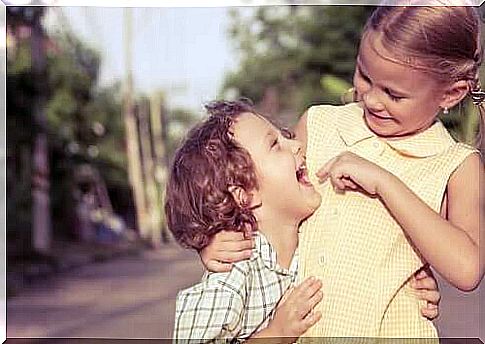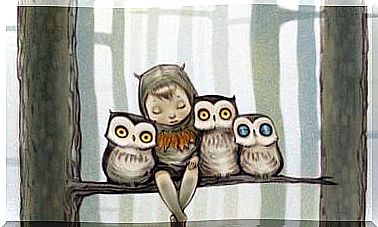Different Birth Order And Personality?

For years, science has been concerned with the possible relationship between birth order and personality. In fact, the possible relationship between these two elements has been questioned.
The first studies dealt mainly with the relationship between the order of birth and some physical characteristics, such as the tendency to get sick more. The results were in most cases inconclusive.
Around 1930, the study of possible physical repercussions of the order of birth turned into an interest in the degree of adaptation of the person; however, equally confusing results were obtained.
Studies by Ernst and Angst on the personality
It was only in 1983 that Ernst and Angst analyzed over 1500 scientific articles on birth order and precise character correspondences. According to their analyzes, the aforementioned relationship is often overrated. Apparently, however, there is evidence of some physical differences related to the siblings’ birth order.
- Firstborns weigh less.
- Firstborns are more likely to die in the womb after 20 weeks of gestation have passed.
- Always the firstborn are at greater risk of contracting intracranial and spinal injuries.
- They are also at a higher risk of dying during or shortly after giving birth.

Ernst and Angst also tell us about some social differences between the firstborn and younger siblings. We can summarize them as follows:
- Parents are more demanding of the firstborn and more attentive to their childhood development. Attention decreases with the birth of subsequent children.
- The firstborn are considered more inclined to dialogue with their parents.
- In small families (with only two children), the firstborn are more inclined to accept parental authority.
Even at the educational and working level, albeit to a limited extent, there seem to be differences. In families consisting of parents and only two children, first-borns typically receive higher education achieving a higher working status than second-borns.
Still, Ernst and Angst argue that the siblings’ birth order does not affect their IQ, academic performance, or the development of mental illness. Nor does it affect factors such as anxiety and addiction.
In their analyzes in 1983, they questioned the relationship between birth order and personality. In 1996, however, author Frank J. Sulloway published the book Born to Rebel. In the book, the author argues that the effects of the siblings’ birth order are evident when they fight for their role in the home.
Sulloway and sibling competition
According to the author, the first-born are the first to take possession of the house, so they try to please their parents in the traditional way, that is through academic successes and responsible behavior.
Following the birth of the other siblings, however, the firstborns find themselves having to struggle to defend supremacy in the family hierarchy.
This leads them to develop a character that we can define as conscientious and conservative. The younger siblings, on the other hand, must face the status obtained by the firstborn, looking for alternative ways to stand out in the eyes of the parents.
As a result, they will develop a more empathic character, tend to fight for their individuality, and adopt political ideals as egalitarian as they are anti-authoritarian.
Sulloway based his studies on the Big Five model (Goldberg, 1990). Starting from this, also authors such as Paulhus, Trapnell and Chen (1999) have analyzed the possible relationship between the order of birth and the personality of the siblings. They came to the following conclusions:
- Firstborns tend to be the most successful and most conscientious. However, they are also more prone to nervousness and extroversion, thus losing out in terms of kindness and openness.
- Younger siblings are typically rebellious, liberal, and companionship.

Birth order and personality in families with three children
In 2003 the authors Saroglou and Fiasse conducted further studies on the subject, analyzing a sample of 122 young adults from families with three children.
- The middle son appears to have adopted the role of “rebel” from birth. Compared to the other brothers, he appears less conscientious, less religious and shows a lower academic performance. But he is also more impulsive and more imaginative.
- The younger son is more sociable and welcoming. He describes himself as liberal and rebellious.
- Firstborns feel more conscientious and show better performance.
Conclusions
From the various studies conducted, it seems that the siblings’ birth order may affect their personality. However, further research is needed in this regard that takes into account variables that have been overlooked so far. Only in this way will we be able to obtain clearer and more definitive results.









